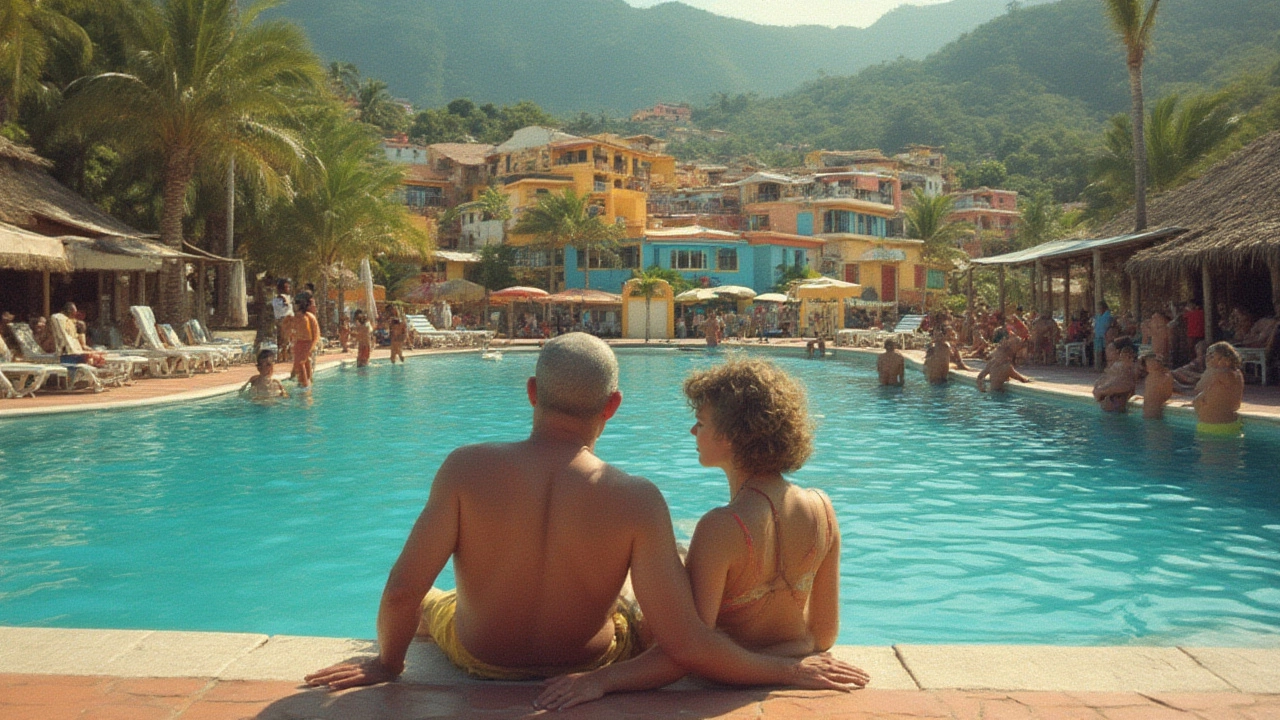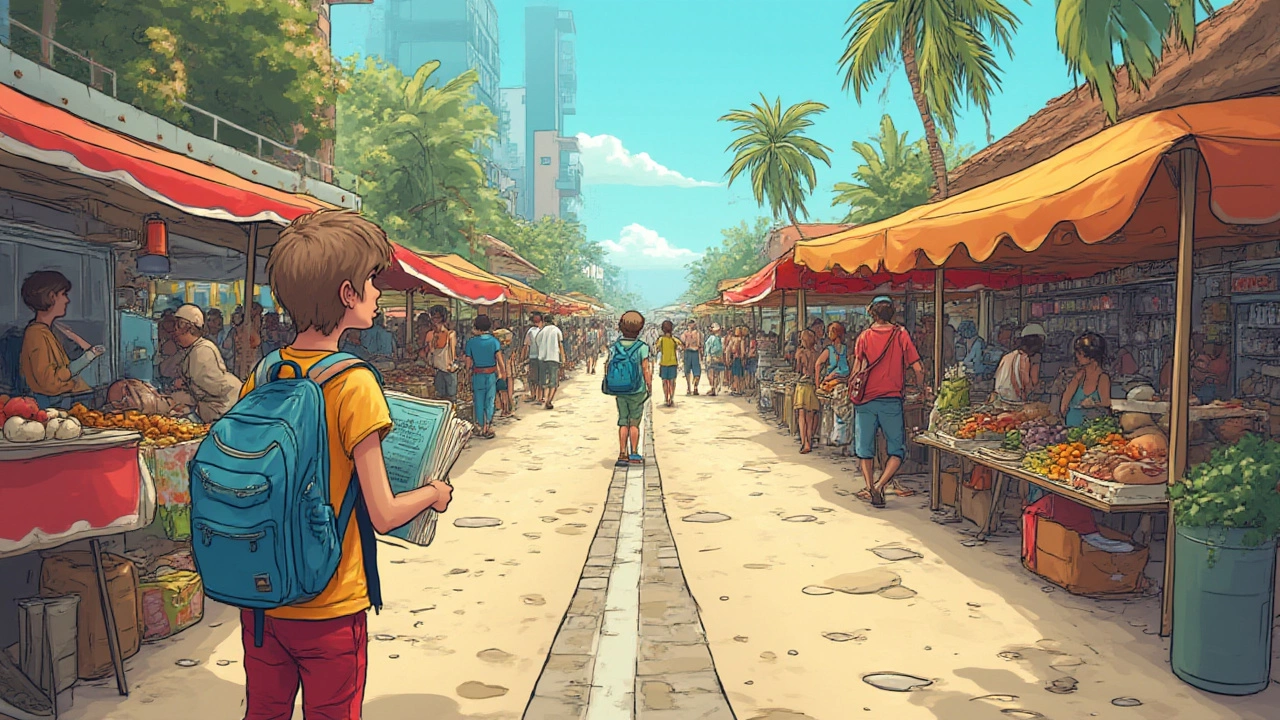Imagine this: you’ve saved up, you’re excited for a sun-soaked break, and you’ve booked an all-inclusive hotel with images of endless cocktails and lazy afternoons at the pool dancing in your head. You step into the dazzling lobby, wristband snapped on like a badge of honor, and you start eyeing up the buffet. But a week later, you’re watching your spending back home, and you wonder—was it actually worth it? Not everything at all-inclusive hotels is as perfect as glossy brochures would have you believe, and if you’ve ever elbowed your way through another questionable buffet line or fought for a sunbed at dawn, you already get the picture. So, what really are the downsides?
The Hidden Costs and Lack of Authentic Experiences
All-inclusive packages sell one thing above all: certainty. You know how much you’re spending up front, you won’t be surprised by a towering bill at the end, and for families, that alone can be appealing. Here’s the catch, though: what you save in peace of mind, you might be forking out in lost experiences and surprise add-ons. The ‘all’ in 'all-inclusive' sometimes comes with fine print you only discover when you’re craving a decent cup of coffee that isn’t instant, or you want to book a fancy dinner and realize you have to pay extra for anything that isn’t basic.
Let’s break it down: those endless buffets often feature cheaper ingredients. Food tends to get repetitive after day three—even the novelty of making your own pancake wears off fast. You might crave something more local, only to find any restaurant worth talking about is outside the resort and, yes, it’ll cost extra. Fancy a bottle of wine? A massage at the spa? Paddling a kayak? Most all-inclusives have premium lists that aren’t covered, and once you start adding things up, your 'budget' trip can tip the scales fast.
Even location-wise, many all-inclusive hotels are isolated from the real action. You’re marooned on a sandy paradise with everything supposedly at your fingertips, but local markets, beaches, and genuine culture are miles away—sometimes literally walled off. You miss out on those magic moments of stumbling on a tiny family-run bakery or chatting with locals at a café. Recent travel studies, like the 2022 European Travel Commission’s guest satisfaction survey, saw huge jumps in happiness for folks who stayed somewhere with real neighborhood connections, compared to big resort guests. Food for thought, right?
If you have dietary needs or food allergies, things get more complicated. Large-scale buffets aren’t known for their tailored service. Tired, overworked staff might not be up-to-date with ingredient lists. There’s often a ‘take it or leave it’ approach, which can leave you with little choice except bland grilled chicken and boiled rice on repeat. For travelers who want to sample dishes bursting with local flavor or specific cuisines, the sameness can start feeling dull fast.
Another cost: your time and peace. Ever wonder why there’s always a stampede at the pool every morning? People lay out towels at 7 AM just to claim their sunbed—even before the lifeguards arrive! If you don’t fancy joining the early-morning towel race, you might spend your sunny afternoon propped up on a rock-hard lounger, squinting at a view of someone’s inflatable unicorn. Not your dream holiday, for sure.

Lack of Flexibility and Cookie-Cutter Experiences
If you’re the type who loves drifting off plan, exploring hidden coves, and dining where locals actually eat, you might feel stifled by the ‘herd mood’ at all-inclusives. Everything is set to a schedule—breakfast at 8, aqua aerobics at 10, bingo at 3. Staying at the hotel for meals because you paid for them can quickly feel more like a sentence than a treat. Leaving for a local dinner? That’s money lost, as you’ve already paid at the buffet.
It all starts to feel a little same-y. Most all-inclusive resort chains copy-paste recipes, performances, and room décor across the world—from Cancun to Turkey, you’ll see the same shows, pool games, and even the same laminated drink menus. You could be anywhere. You might leave with a tan and not a single standout memory of the place itself. If you talk to seasoned travelers, they’ll tell you the stories worth retelling came from getting lost in a bustling square, chatting with a taxi driver about politics, or trying something unexpected—not from a perfectly timed poolside water aerobics class.
Kid clubs and entertainment do make life easier for parents—until you realize you haven’t seen much of your children or partner all week, and you’re all following different schedules. This ‘segmentation’ isn’t always bad, but it can mean you return home without shared experiences. If you prefer meaningful family time, you might feel shortchanged by all the hyper-organized activities meant to keep everyone busy and separate rather than together.
Let’s talk about the space itself. All-inclusives can be vast—so big they need their own shuttle buses or confusing signage. The upside is plenty of space; the downside is lines for everything: breakfast, bars, towels, even toilets. Peak times turn the resort into a miniature city with all the bottlenecks and noise but without much of the soul. Some places have managed to keep a relaxed atmosphere (usually smaller boutique all-inclusives), but most big chains don’t.
If you have any sustainability leanings, all-inclusives can be a headache. With thousands of guests producing mountains of waste—plastic cups, leftovers, pool inflatables—the impact adds up. Some chains are making changes, but the ‘eat as much as you want, drink whenever you like’ model isn’t exactly gentle on local water supplies or landfill sites. There’s also the local economy. Your spend is locked inside resort walls, so small businesses nearby might struggle—even though your hotel boasts about ‘direct benefits to the community’ on their website.

When Service and Quality Take a Backseat
This is where it gets real: one of the biggest complaints about all-inclusive hotels is that service can become, well, a bit careless. Since guests have prepaid, tipping can seem pointless (even though staff often depend on tips), so service staff sometimes act like autopilots. Ever tried ordering a cocktail and ended up with a cloudy drink made from the cheapest spirits? That’s not rare. Your expectations of gourmet dishes might meet lukewarm chicken and chips, served with a shrug.
The issue stretches to overcrowding. Because everything’s paid upfront, everyone piles in. The results? Dinner slots that you have to book days ahead, entertainment venues you squeeze into, and sunburned crowds jostling at the buffet. One TripAdvisor review from July 2024 summed it up: “It was like a cruise ship that never sailed away.” That says it all—the sense that you’re just one of thousands on a people conveyor belt.
Then there are those resort rules. Pools closing at sunset for ‘maintenance’ that takes hours. Dress codes for dinner that nobody explained until you turn up in flip-flops. Certain bars closing earlier than promised. These controlled environments can start to suck the spontaneity out of your trip, making you feel less like an explorer and more like you’re back in school.
Security and privacy can also be a concern. With so many people flowing through, crowded lobbies and public areas make personal space a hot commodity. Noise seeps through walls, and it’s rare to have a private, tranquil moment. For many, switching off is the dream; for others, constant music, announcements, and the shriek of poolside bingo quickly become a nightmare.
So what do you do if you’re still drawn to the convenience of all-inclusive—but dread feeling like you’re living in a holiday factory? My advice: look for smaller resorts with strong guest reviews mentioning personal touches and a sense of individuality. Some all-inclusives are flipping the script, focusing on local produce and partnerships with area businesses to offer food, excursions, and experiences you’ll actually remember. Ask loads of precise questions before booking and don’t take the website’s word for it. Is local food actually served? Are there extra charges for decent coffee, fresh juice, or spa treatments? Do you have easy access to villages or beaches nearby, or are you literally gated in?
If you’re after a trip full of stories, independence, and chances to meet people who actually live in the place you’re visiting, weigh the tradeoffs. An all-inclusive hotel might scratch the itch if you want a week of rest and routine with no surprises—just know what you’re really paying for: predictability, not adventure. And sometimes, adventure is where the best travel memories live.
